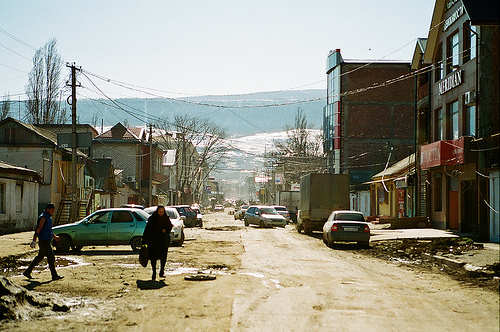
On September 15, 2012 Dagestan, a Russian republic located next to Chechnya in the North Caucasus, was celebrating its Day of National Unity [ru]. While the holiday always seems to be forced upon Dagestan the need for unity is undoubtedly important for the region.
The North Caucasus is one of the most ethnically diverse regions of Russia, and Dagestan is no exception. Its largest ethnic group, the Avar, make up only 30% of the population – the rest is split between a dozen small nationalities.
Ethnic division combined with high levels of unemployment is a recipe for volatility. Opposition leader Eduard Limonov blogged on August 15 [ru]:
[The] impression is that Dagestan is about to stop being a territory of the Russian Federation, because every day we learn of subversive acts, murders and attacks …This is a classic beginning of a civil war.
Two weeks later talk of civil war [ru] was on everyone’s mind. On August 28, Said Afandi, a Sufi Sheikh and one of Dagestan’s most prominent religious scholars, was killed by a female suicide bomber [ru]. The bomber was a Salafi Muslim, and the killing was a manifestation of the tension between the republic’s traditional Sunni Sufis and a growing fundamentalist movement, according to Dagestani blogger[ru] Saif Nuri.
